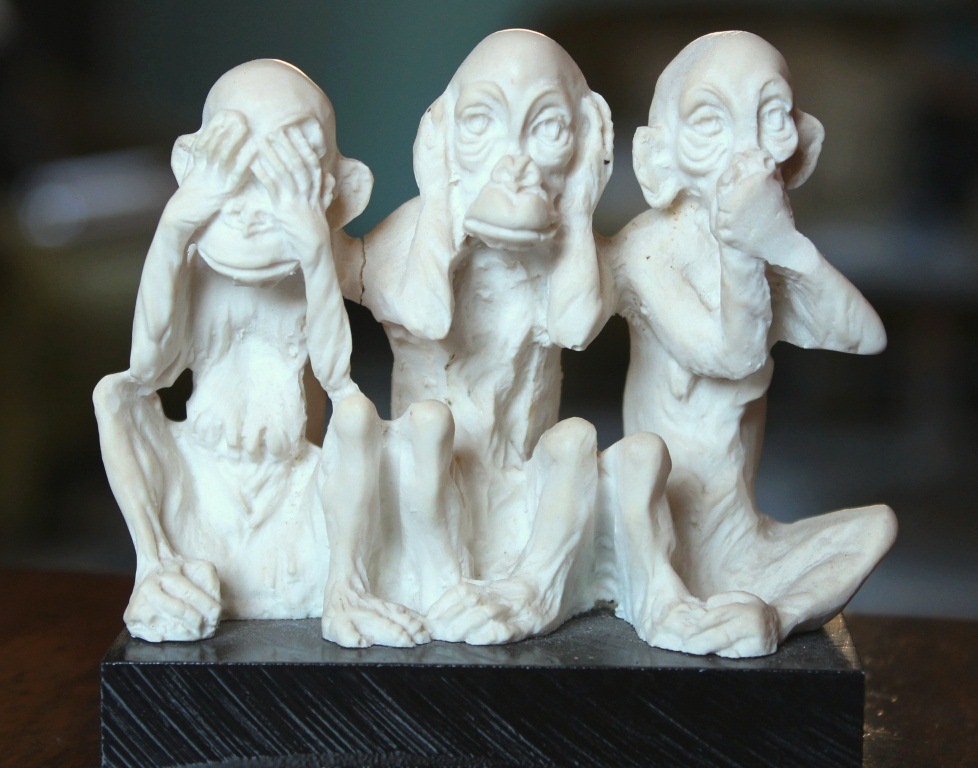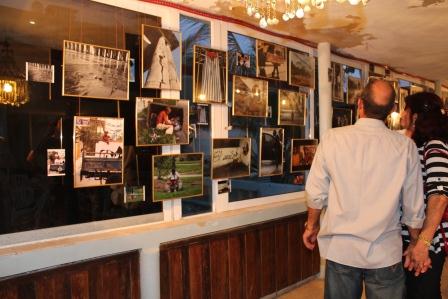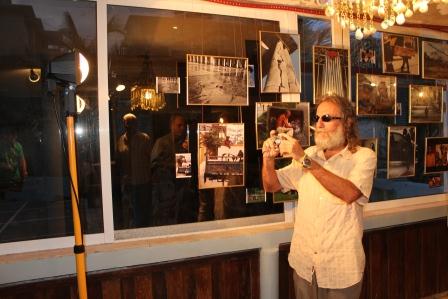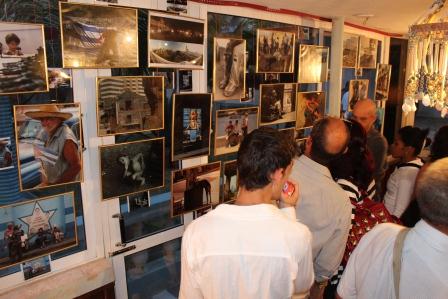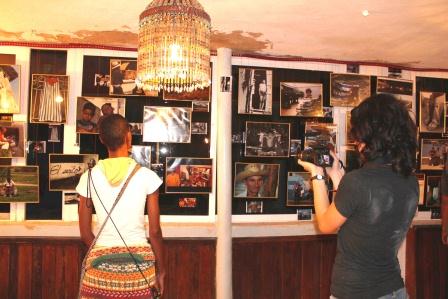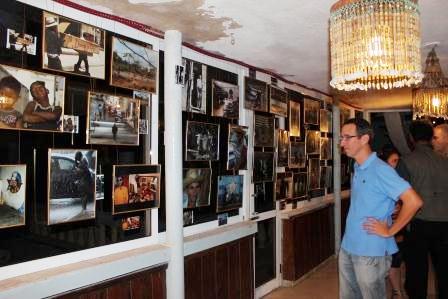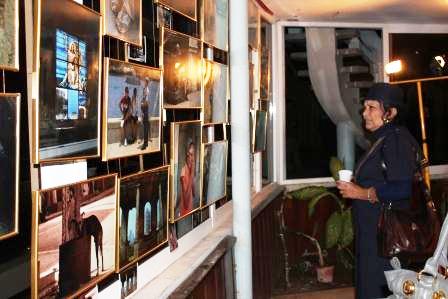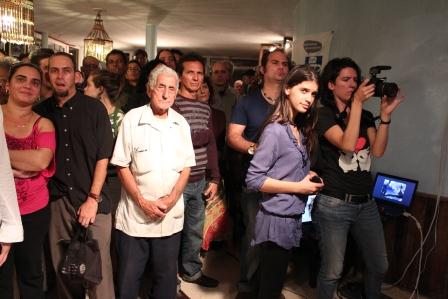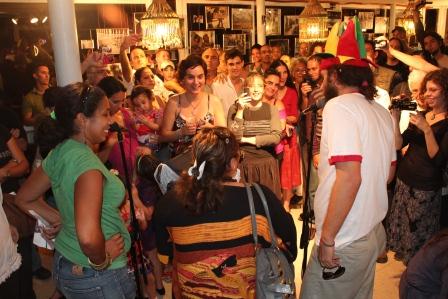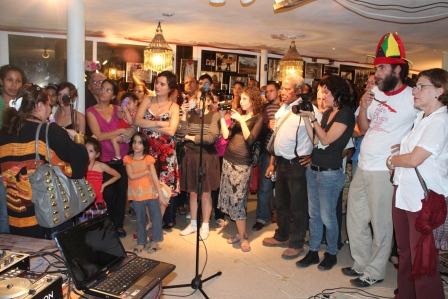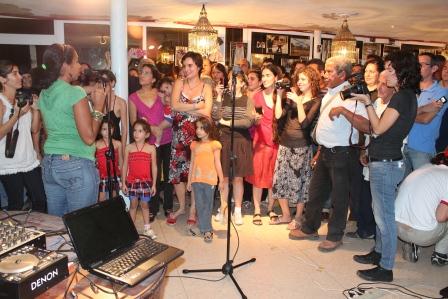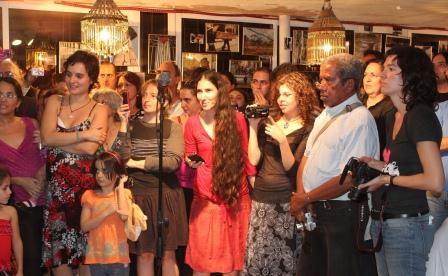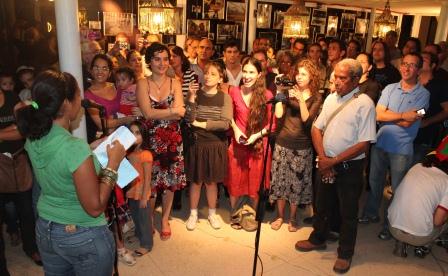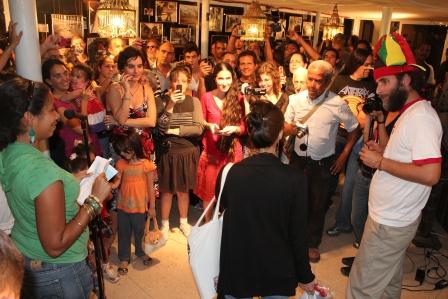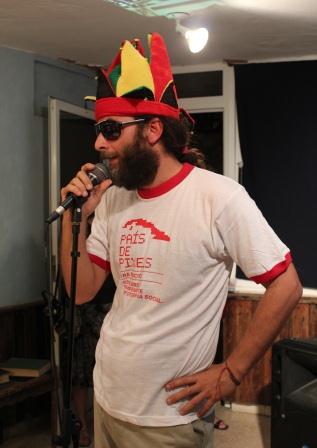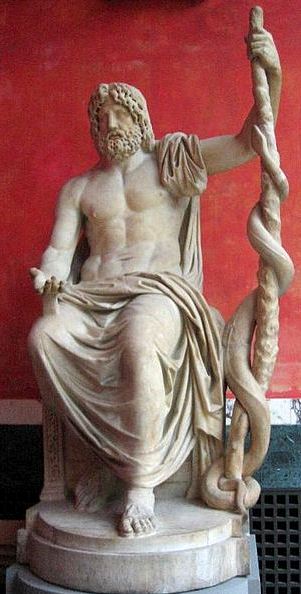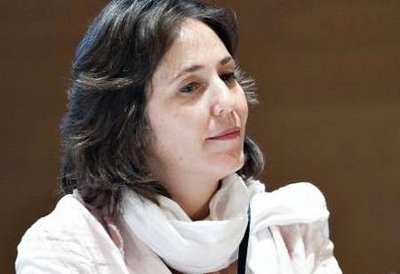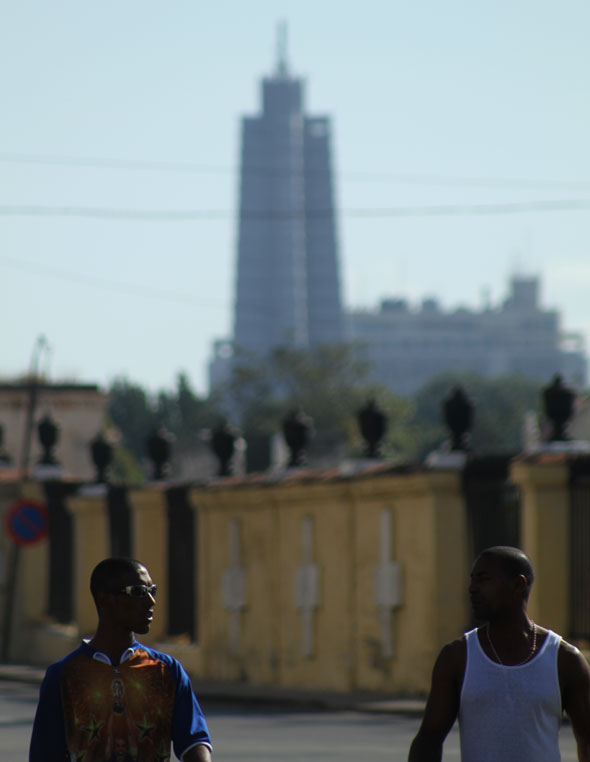The First National Conference of the Communist Party of Cuba, recently held on January 28th and 29th, left a permanent bittersweet taste. First Secretary Raul Castro said that one of its objectives was to, “promote greater democracy in our society, starting with an example within the ranks of the Party.” In this light, any person outside of the harsh reality that we Cubans live — not the virtual mysticism preached by the ruling party — could sigh hopefully. But millions on the island, hardened by the repetition of phrases like these, we claim the benefit of the doubt.
In my capacity as an ex-militant of that party, of which I was a member for 10 years until I was expelled in 2005 – without ever having committed any act of corruption, crime or treason, but only by this story that ended in the creation of this blog “Ciudadano Cero” (Citizen Zero) in Voces Cubanas — I ask to speak.
I think that if the Communist Party wants to be minimally tolerant in relation to society, it should begin to be so in relation to its own members. An anecdote to illustrate it will suffice: In mid 1999, I had the silly idea to ask, in my heart, how the recently issued Resolution 54, of the Ministry of Public Health, would be implemented in light of the Cuba-US migration agreements in place since 1994, after the Rafter Crisis, to prevent a worker who received a U.S. visa from leaving the country, perhaps for years, would not that contradict the letter of these agreements?
Well, this “mischief” cost this Cuban boy a year of tense meetings with officials of the Municipal Committees and Provincial Party to penalize me for trying “….to question the decisions made at the central level.” I did not back off, but such fuss over a simple little question – not even made public, but kept within the party – and eventually I opened my eyes to a reality: someone who uses his own judgement and he leaves, with his music, headed elsewhere, in the Communist Party of Cuba they do not join to think, but to obey orders without restrictions, without questions, but rather obey orders unrestricted, divine, unquestionable, dictates from the higher-ups who only listen when people applaud and never when they ask questions.
Then he concludes, if this mechanical operation of party members persists, in the face of such a psychology, would one expect a different attitude toward the rest of the people?
When reading in Raul Castro’s closing speech in the newspaper Granma, from the headlines and leads it is obviously an antagonistic contradiction: The party states the need to “…promote greater democracy…” yet refuses so resoundingly to officially recognise differing political positions.
“Ending the principle of a single party would be….to legalise the party or parties of imperialism on our native land…”. Most clearly, impossible: the question remains are you with me or against me!
Such an approach still admits the possibility that Cubans have different opinions, genuine patriots willing to safeguard the independence of their country. Thus the emphasis is on Fidel’s classic syllogism of leader-Revolution-nation, in which there is only one way to be a consistent patriot: by being an ardent admirer of the Revolutionary leader and obeying even his most absurd decisions.
In a discourse that emphasizes analogies historically used by the Cuban government to demonise various political schemes (plurality = demagoguery = commercial exploitation of politics = appeasement to the U.S.), our President criticizes “…the validity and usefulness of so-called representative democracy…” because “…has become invariably the concentration of power in the class that holds the economic hegemony…” and he says it as if in Cuba, even with specific nuances, the same thing didn’t happen.
Too often our people witness that the most notorious corrupt – Raul recognizes it – are the ardent activists who for decades maintained their status of stratospheric life before the impassive gaze of the Party and government authorities. If this is known, despite a press censorship comparable only, perhaps, to the one that governs North Korea, it is easy to imagine what would happen if in our own in a fit of ethics, difficult to conceive, unwrapped Pandora’s box. For all this we were married to the lie and they forced us to live with her.
I remain stunned by Raul Castro when he asked the party “…to foster a climate of maximum trust and the conditions….for the most comprehensive and frank exchange of views, both within the organization, its links with the workers and the population, encouraging disagreements to be taken with ease and respect, including the mass media… to be involved with the strictest accountability and accuracy in this endeavour… with proven objectively and without unnecessary secrecy.“
It turns out that over the last year and a half, I myself have gotten to Raul Castro four letters which clearly expounds our case, Raul himself here speaking completely ignores them and likewise it did reach the main Cuban periodicals without their ever having the courage to publish them.
Although my astonishment increased when I hear the President ensure: “You have to get used to telling us all the truths from the front, looking into his eyes, disagree and argue…when we consider that we are in the right…” however, finally awakened when displayed in fact, stating that everything will be “…of course, in the right place at the right time and in the right way…“
This blog is run by someone who dared to disagree and that is why he was expelled from the party, lost his specialty, Medicine, and was then barred from practicing his profession. It is a curious way of understanding the right to dissent and of “naturally and respectfully accepting differences“! In fact, I would advise the First Secretary a little “caution” when talking, for example, about the danger the corrupt assume, that it not end with he himself expelled from the Party for challenging them, as recently happened to Professor Esteban Morales.
But where this speech is worthy of “coven” award for the great Creole humor it distills, it is the point at which the First Secretary assures us “...that in the Party there must be a definitive end to the top down control — the ’boss-ism’ — its force is moral, not legal… it is the moral force!“
To listen to this in a country where the Communist Party arranges and controls everything – even the prosecution, forgive the repetition – is hilarious. It is no secret that while the Party says in public that it does not govern, not manage, and that its function is to “guide” that “…it demands all those responsible fulfill their, without interfering in the administration…” – I do not see how it is possible to do one thing without the other – however, the reality is that nothing of political or administrative importance is approved without the consent of the Communist Party, its leaders have unlimited powers, the Party gives and takes, according to its interest, officials from all levels of government, appointed and replaced at leisure managers, company directors, provincial directors, ministers, generals, trade union leaders and mass organizations, and it arranges which “NGOs” will be approved and which will have his profile.
It promotes and fires deputies of all levels, presidents of municipal and provincial assemblies of the Popular Power, in the end, it is the manager of the totality of life of this country without any type of limitation, with an attentive eye on these civil servants to be thrown out the window for minor slides.
In this way, the Cuban government – of which all the high officials are, incidentally, communist militants – reaches the audacity to proclaim to the four winds, when you want to question the Cuban electoral system, that it is not the Communist Party that postulates, that what happens “in theory”is for one simple reason: it doesn’t need it, because it is the lord and master of this country. If the party frowns; ministers, deputy ministers, colonels and generals grow pale. But if the party raises its voice and gives them a swipe, they defecate their pants.
So why shouldn’t we recognize that the party actually nominates them all?
In the end, this speech holds in abeyance some basic questions: Would the Cuban government dare to officially recognize the political opposition now that the Party says it is willing to “promote democracy”? Deciding to limit the stay in government positions to two terms of five years – after spending more than 50 years in it themselves – are they finally convinced that power intoxicates when exercised for too long?
Also in this speech – like those Fidel Castro used to make – starting from the atrocities perpetrated by the imperialist blocs, he tries to legitimize atrocities committed by our government against its own people, as if the one justifies the other. Yes, the world is screwed up, but in this little rock that suffers under the Caribbean sky, the civil rights of 11 million Cubans are finally slaughtered with the permission of the Communist Party.
Translated by: Hank Hardisty
February 26 2012
